By Mindy Mintz Mordecai, CEO & Founder of Esophageal Cancer Action Network (ECAN)
“If only we had known.” It’s refrain we hear too often from supporters of the Esophageal Cancer Action Network (ECAN). It’s the reason this non-profit patient advocacy organization was founded 12 years ago with a commitment to prevent the tragedy that has befallen too many families because they didn’t know that heartburn or acid reflux might lead to a life-threatening cancer.
Lack of Awareness
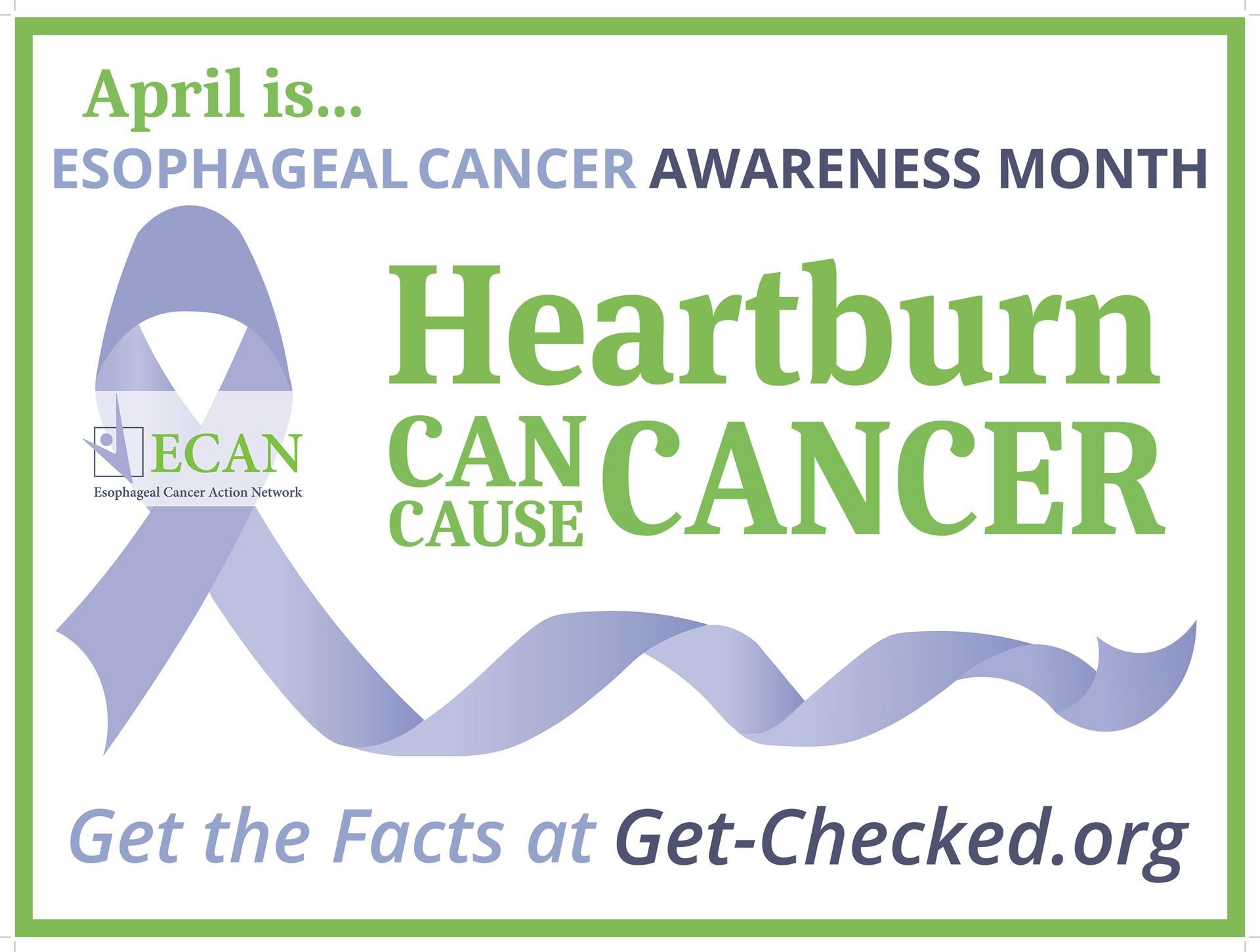 ECAN’s mission is to save lives – and one of the most important ways ECAN accomplishes its goal is by making more folks aware that persistent heartburn or reflux symptoms should not be taken lightly – that they may put their lives in danger. ECAN commissioned a poll by IPSOS to determine just how many Americans are aware of the link between reflux and cancer. The results were not surprising. Only 14% of Americans were aware that reflux disease could lead to cancer. Most of those surveyed could only point to heartburn as a symptom of reflux, with little understanding that symptoms like a hoarse voice, sore throat, persistent cough, or choking upon lying down could be signs of GERD. That’s why ECAN continues its relentless efforts to increase awareness about Esophageal Cancer.
ECAN’s mission is to save lives – and one of the most important ways ECAN accomplishes its goal is by making more folks aware that persistent heartburn or reflux symptoms should not be taken lightly – that they may put their lives in danger. ECAN commissioned a poll by IPSOS to determine just how many Americans are aware of the link between reflux and cancer. The results were not surprising. Only 14% of Americans were aware that reflux disease could lead to cancer. Most of those surveyed could only point to heartburn as a symptom of reflux, with little understanding that symptoms like a hoarse voice, sore throat, persistent cough, or choking upon lying down could be signs of GERD. That’s why ECAN continues its relentless efforts to increase awareness about Esophageal Cancer.
Proclamations in the Halls of Power
Even though Esophageal Adenocarcinoma was the fastest increasing cancer diagnosis in the United States back in 2009, it did not receive much attention nor research funding. That’s why ECAN started Esophageal Cancer Awareness Month in 2009 with the first Gubernatorial proclamation coming from the state of Maryland. Since then, nearly every state in the nation has declared April Esophageal Cancer Awareness Month at least once over the past 12 years. Possibly even more important, the media, business entities, hospitals, and governmental and professional groups reach out in April to raise awareness about Esophageal Cancer and its link to reflux disease.
Sharing Information
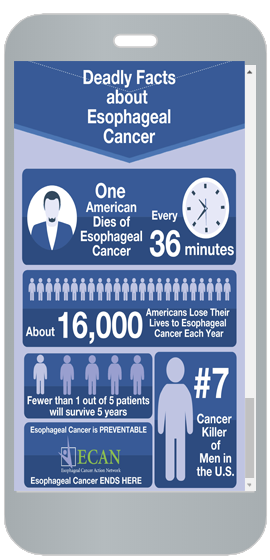 In 2021, ECAN is making it easy for citizens to educate everyone they know with opportunities to share important awareness messages about Esophageal Cancer. Among those opportunities are lawn signs you can order to post in your own yard, and ECAN’s Text-a-Day service. Participants in the free texting program will receive a text every day during the month of April with easily sharable social media posts, videos, stories, and infographics that they can share with their friends and family - providing a potentially life-saving message every day during Esophageal Cancer Awareness Month. Those opportunities for individuals to raise awareness can be found at ECAM2021.org.
In 2021, ECAN is making it easy for citizens to educate everyone they know with opportunities to share important awareness messages about Esophageal Cancer. Among those opportunities are lawn signs you can order to post in your own yard, and ECAN’s Text-a-Day service. Participants in the free texting program will receive a text every day during the month of April with easily sharable social media posts, videos, stories, and infographics that they can share with their friends and family - providing a potentially life-saving message every day during Esophageal Cancer Awareness Month. Those opportunities for individuals to raise awareness can be found at ECAM2021.org.
Increasing Research Funding
April is also an important time for those advocating on Capitol Hill. For ECAN, it’s when our advocacy campaign to include Esophageal Cancer in the multi-million-dollar Peer-Reviewed Cancer Research Program (PRCRP) of the U.S. Dept. of Defense is heating up! For the past two years, ECAN and its supporters have successfully convinced Congress to include Esophageal Cancer in this important program. In 2021, the result will be more than $4 million in additional research funding for Esophageal Cancer. Before ECAN’s efforts, Esophageal Cancer researchers were not included in the program except in years when they accepted applications for research into rare cancers. You can find out more about the research funding available this year through the PRCRP at ec-research.org.
Taking Steps to Save Lives
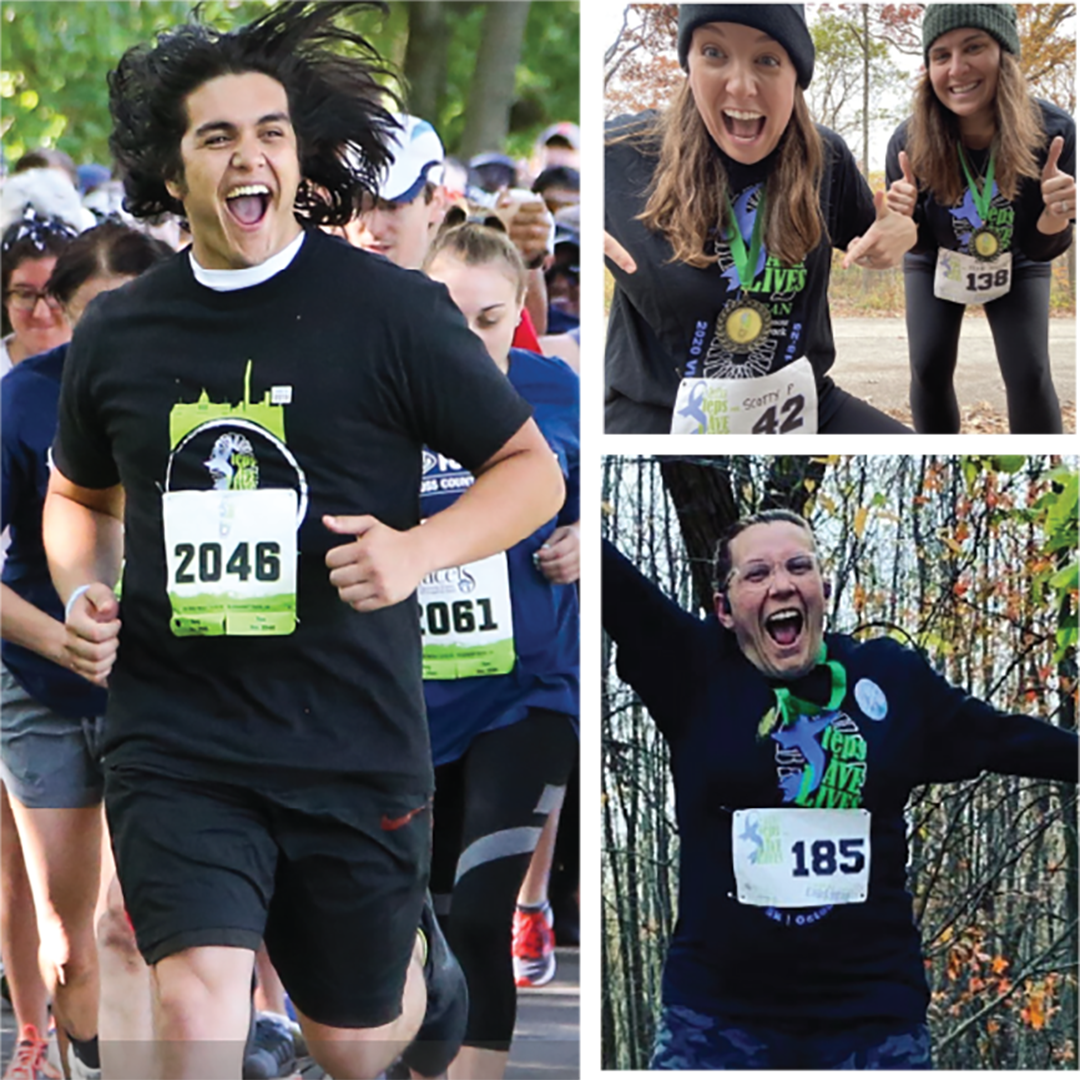 More than 400 supporters of the fight to end Esophageal Cancer are expected to participate in ECAN’s second Virtual Steps to Save Lives 5K Run, Walk or Roll from April 18 – 25th! Anyone anywhere can participate and ECAN will send those who register a great “swag bag” with a medal, racing bib, t-shirt, and lots of awareness materials to share along with some other little gifts.
More than 400 supporters of the fight to end Esophageal Cancer are expected to participate in ECAN’s second Virtual Steps to Save Lives 5K Run, Walk or Roll from April 18 – 25th! Anyone anywhere can participate and ECAN will send those who register a great “swag bag” with a medal, racing bib, t-shirt, and lots of awareness materials to share along with some other little gifts.
The 5K competition is run on an honor system. Runners who win in their respective age and gender categories will receive medals and overall winners get crystal awards. Fundraisers earn nice prizes as they work toward their goals and top fundraising individuals and teams get very special prizes. But fundraising is not required to participate. You can get all the details and register at StepstoSaveLives.org.
Lighting the Night Sky in Periwinkle
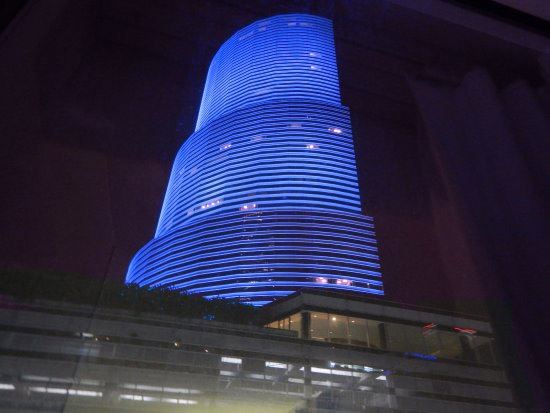 ECAN is also working to raise public awareness about Esophageal Cancer as it gets iconic buildings and landmarks to be illuminated in periwinkle blue (Esophageal Cancer’s awareness color) during the month of April. Locations such as NASCAR’s Headquarters and the Niagara Falls are among the sites that will share that awareness raising light again this year.
ECAN is also working to raise public awareness about Esophageal Cancer as it gets iconic buildings and landmarks to be illuminated in periwinkle blue (Esophageal Cancer’s awareness color) during the month of April. Locations such as NASCAR’s Headquarters and the Niagara Falls are among the sites that will share that awareness raising light again this year.
First Esophageal Cancer Conference for All Stakeholders
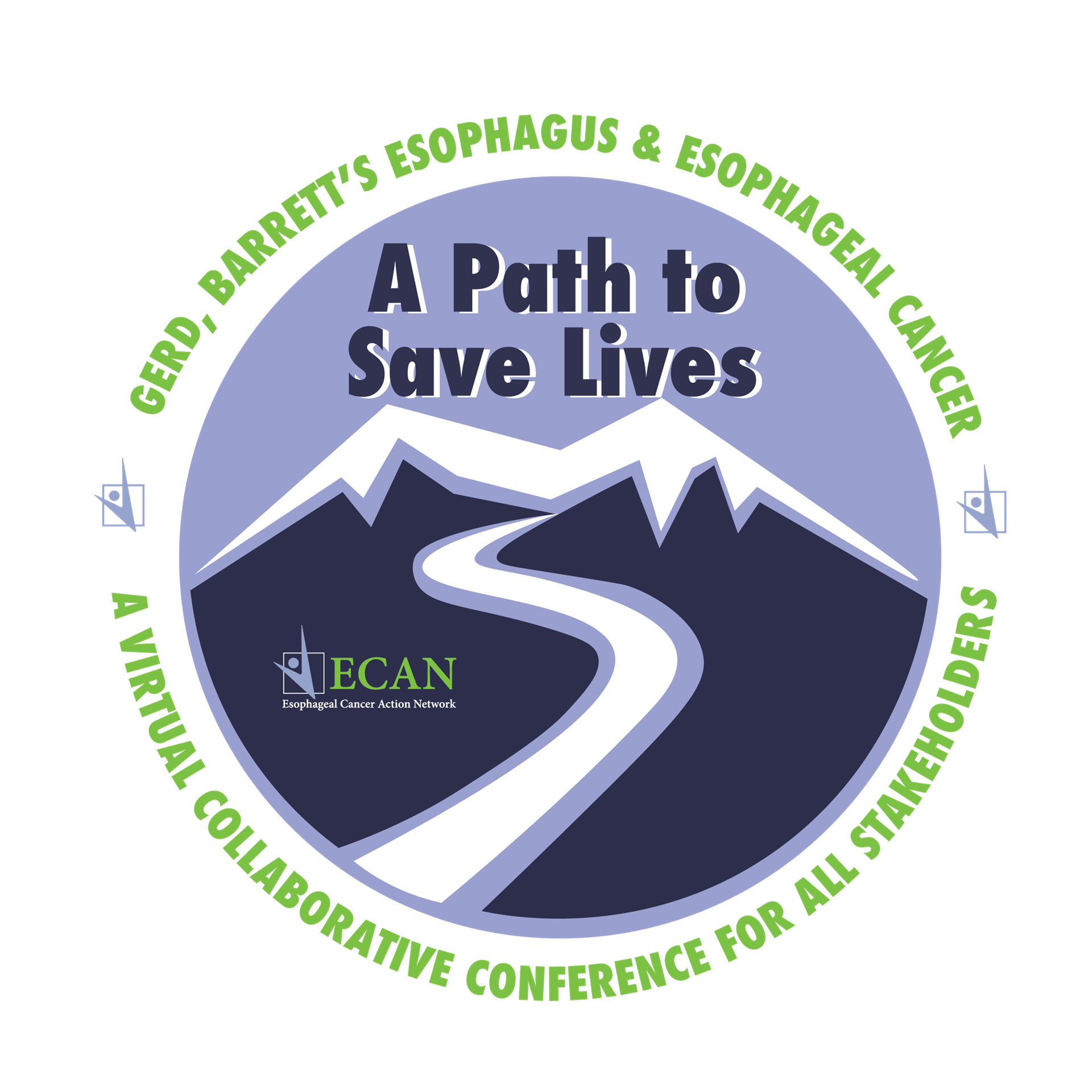 Though not strictly in April, ECAN is putting the finishing touches on plans for the first Esophageal Cancer Virtual Collaborative Conference for All Stakeholders called GERD, Barrett’s Esophagus & Esophageal Cancer: A Path to Save Lives to be held in May of this year. The conference is focused on collaboration between healthcare professionals, patients, caregivers, advocates and industry.
Though not strictly in April, ECAN is putting the finishing touches on plans for the first Esophageal Cancer Virtual Collaborative Conference for All Stakeholders called GERD, Barrett’s Esophagus & Esophageal Cancer: A Path to Save Lives to be held in May of this year. The conference is focused on collaboration between healthcare professionals, patients, caregivers, advocates and industry.
The three-day virtual conference has an illustrious panel of presenters with a robust schedule of topics, including:
- Detection and Treatment of Barrett’s Esophagus,
- Familial Links in Barrett’s Esophagus,
- An In-Depth Look at Personalized Medicine in Esophageal Cancer,
- A Point-Counterpoint on the Benefits of Esophagectomy,
- Collaborative Session addressing the dramatic increase in Early-Onset Esophageal Adenocarcinoma.
The agenda includes a focus on the needs of survivors of Esophageal Cancer, morning yoga sessions, lunchtime cooking demonstrations and even some entertainment from an Esophageal Cancer survivor who has performed Off-Broadway.
At the conference, ECAN will also present its first Bogart Awards to an individual, a researcher, and lawmakers who have made extraordinary contributions to the wellbeing of those at risk for Esophageal Cancer. Humphrey Bogart died of Esophageal Cancer in 1956 and his Estate has had a partnership with ECAN for nearly a decade. You can sign up for more information about the conference at APathtoSaveLives.org.
Reward of Raising Awareness
ECAN’s goal is that one day a repeat survey of Americans can be conducted and will show a much-increased understanding among the general public about the risks posed by persistent Gastroesophageal Reflux Disease. Just as we all know the importance of sunscreen to head off skin cancer, ECAN is working toward the day when everybody understands that reflux disease is not a mere annoyance so they get the medical attention they need to avoid ever having to say, “If only we had known.”
.png)